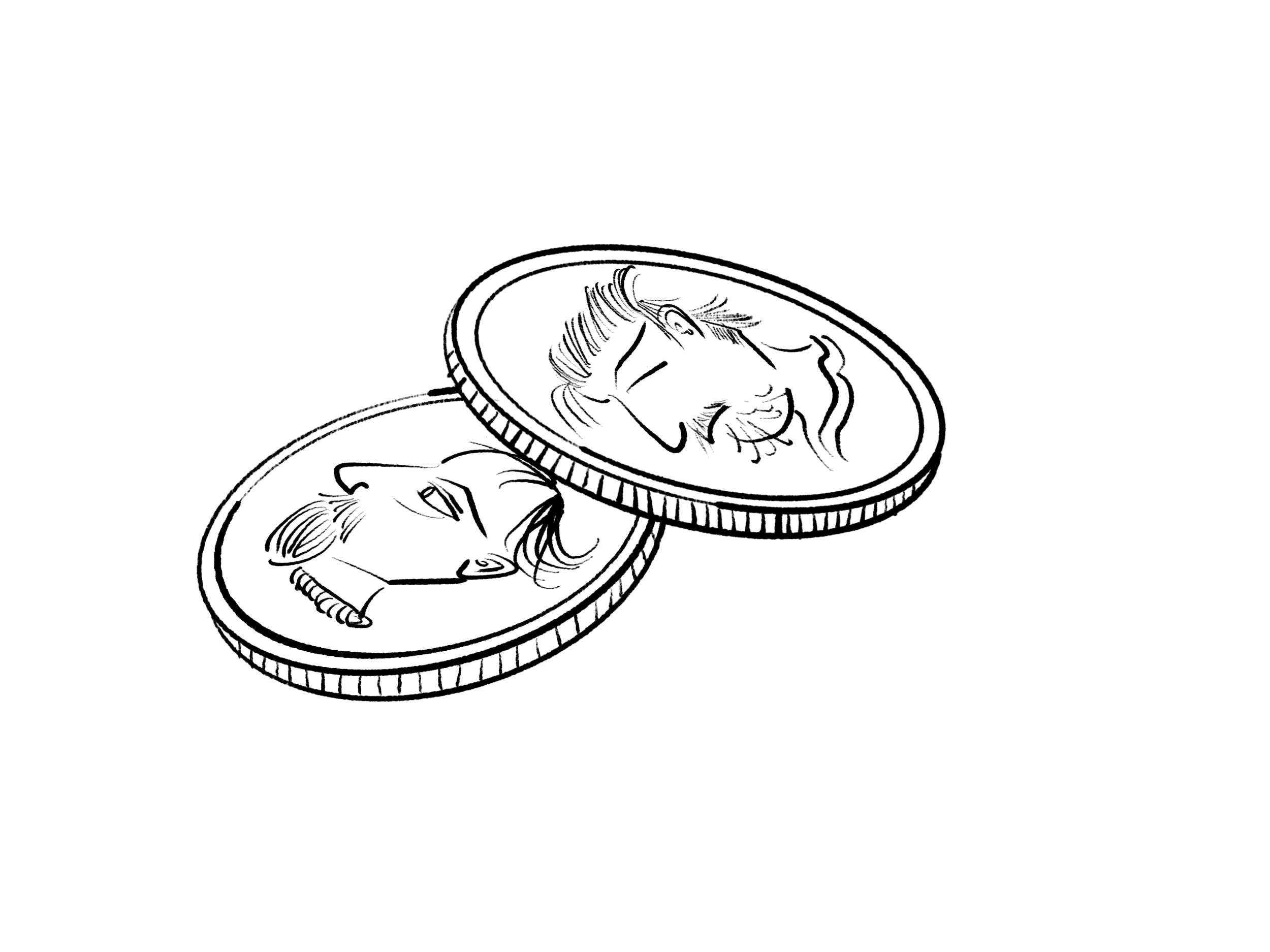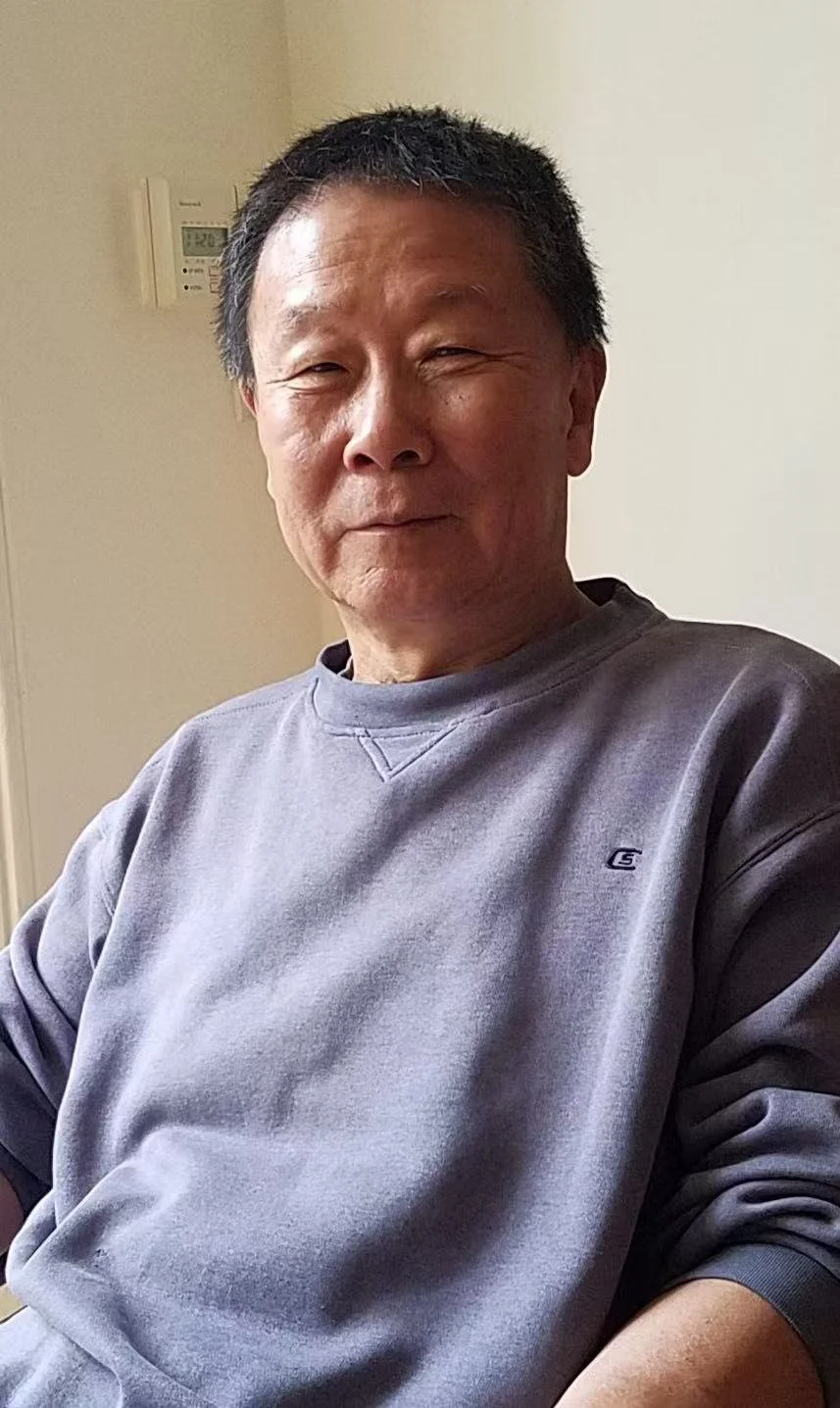Two Beggars | 两个乞丐
Written by: Qu Leilei | 曲磊磊
Translated by: Claire Xiong
Editor’s Note:
This article is excerpted from Haha! Britain — a charitable bilingual publication co-produced by The Mothers’ Bridge of Love (MBL) and River Cam Breeze. The book is a lively collaboration between 42 Chinese authors living in the UK and 36 university-based volunteer translators. With wit and warmth, the stories capture the everyday realities of Chinese communities in Britain, offering an honest look at the cultural clashes, humour, and adaptation that arise in the space between Chinese and British ways of life. Haha! Britain has been warmly endorsed by several well-known figures in UK-China relations, including Stephen Perry (former Chairman of the 48 Group Club), Luise Schäfer OBE (former British diplomat and Chamber of Commerce chair), Professor Hugo De Burgh (former BBC editor and academic), and British scholar Martin Jacques. The book’s title was handwritten by celebrated British-Chinese artist Qu Leilei, its cover illustrated by bestselling Chinese author and poet Feng Tang, and the postscript contributed by Xue Mo, a prominent voice in contemporary Chinese literature.
Illustrated by Tian Tian
“You must beg from everybody.”
After developing a rapport with me, the beggar revealed the essence of his line of work. Although I was certain he hadn’t read Dostoevsky, his words echoed a sentiment found in Dostoevsky’s The Insulted and Injured.
That day, he sat by the street at the junction of Sloane Square and King’s Road in central London, his eyes eagerlyscanning the passersby.
“Excuse me, could you spare some change?” His hands, with long untrimmed nails, reached out as an old hat,containing a few coins, lay at his feet.
Seeing his lively appearance and sincere expression, I couldn’t help but feel a sense of compassion, recalling my owndays of poverty. With no pressing matters that day, I decided to sit down and chat with him.
I asked how I could help, and he confided that he didn’t want to live like this but felt he had no other choice. He spoke of an organization in Cardiff, Wales, that helps people like him start anew. He wanted to go there but lacked the money for a train ticket.
As he spoke, tears welled up in his eyes. I gave him all the spare change I had and offered to draw a picture for him, mentioning that I am an artist. He told me that he once had dreams and hopes, but due to various reasons – familial,societal and personal – he lost everything. He had no home, no job, no friends – nothing left.
I didn’t know how much of what he said was true, but my attentive listening must have touched him. As I was aboutto leave, I asked him to share some insights into the life of a beggar. Squinting one eye, he said, “You must beg from everyone.”
This was my biggest takeaway that day – a profound insight into survival. As a beggar, you never know who the giverwill be. Well-dressed bosses and elegantly attired ladies often pass by without a glance, while ordinary people, tourists andchildren are the ones who drop a few coins into your old hat.
Some time later, I happened to pass by again. The beggar was still there, doing the same thing, telling the same storiesto passersby. It seemed he hadn’t gone to Wales after all. The picture I drew of him depicts him with one eye sincere andthe other slightly cunning. As Gu Kaizhi, the celebrated painter of ancient China, said, “The spirit of a painting lies in theeyes.”
I remembered the local government elections, where candidates from various parties knocked on doors, respectfullyand warmly asking questions, then outlining their main policies, mostly on welfare, taxes and public safety, which areissues close to people’s hearts, before asking for your vote. Regardless of their true intentions, they had to presentthemselves as the best caretakers of national and public interests. Those who win people’s hearts win the world!
On a larger scale, it’s just the same with the presidential election in the US and the Prime Minister election in the UK.“Vote for me, I’ll cut taxes! Vote for me, I’ll increase welfare! Vote for me, I’ll improve employment, healthcare, education and public safety...”
It’s all just the same, isn’t it? Different professions, same nature. If you want to succeed, you must humble yourself and seek help from everyone, without distinction. This is what we call professionalism.
I once met another beggar, many years ago, shortly after I arrived in the UK. Apart from a roll of paintings and my two hands, I had nothing. I had to seize every opportunity to make money to survive before I could aspire to more.
At one point, I was invited to an arts festival in the southwest part of London. It was held in a large park filled withsingers, dancers, glassblowers, painters, jugglers and food vendors – everything you could imagine. Such events are where people spend their small change, but I knew that small amounts could add up to something significant.
I quickly assessed the situation and started to make greeting cards, drawings of flowers and animals, small gifts, mottocards, and writing Chinese names for British people combined with pictographic zodiac signs. People were happy to spenda few coins for a bit of fun, and it was a good chance for me to practise my calligraphy. Soon, a queue formed in front ofme.
I earned quite a bit that day, filling my pockets with over two or three hundred pounds. The gleaming one-poundcoins felt like gold to me, making me feel quite wealthy.
When the festival ended that evening, I tightened my belt to keep my heavily-loaded trousers from falling and pulledmy cart of art supplies into the underground. Feeling happy, I silently made a vow to myself that I would help anyone in need that day.
Just then, I saw a beggar approaching from the far end of the platform. He was young, dishevelled and a bit dirty,holding out his hands for money. I reached into my pocket, ready to give him two or three of my golden pound coins. Hestopped close to me and looked me up and down. And then, with a flick of his chin, he turned to ask someone else.
My first reaction was a surge of anger, “This one thinks he’s too good for my money!” My second reaction was a bitof pity, “He didn’t get any money, did he?” Probably no one was ever prepared to give him that much. Reflecting on it, Irealised the reason: this is what we call amateurism.
To this day, I often think of these two beggars.
In recent years, many fresh postgraduates often seek my advice on how to start their next steps or venture intoentrepreneurship. I have two key pieces of advice for them: first, be clear about what you want. Second, have a clear planfor how to achieve it. One is about the goal; the other is about the action.
About the author
Qu Leilei, originally from Beijing and born in the northeastern province of Heilongjiang, is the third son of Mr. Qu Bo,renowned Chinese writer, and Ms. Liu Bo. With a rich family heritage, he has delved into literature, history, philosophy and medicine. He began studying calligraphy and painting at the age of eight. In the summer of 1980, he co-founded the StarsGroup with Ma Desheng, Huang Rui, and Zhong Acheng. In 1985, he moved to London. In 1999, he was elected Presidentof the Chinese Painting and Calligraphy Association in the UK, Vice President of the Confederation of Chinese Associations UK, and trustee of the Chinese Arts Foundation in the UK. His works have won numerous international awards.
You must beg from everybody.(你必须乞求每一个人。)
这是他,一个乞丐,对我有了好感和信任后,告诉我的这个行道的真谛。我敢说,他肯定不知道陀思妥耶夫斯基这个名字,也肯定没读过陀思妥耶夫斯基的书,但是他却说出了跟陀思妥耶夫斯基一模一样的话,这句话出自《被侮辱与被损害的》。
那天,他坐在伦敦中心区斯隆广场和国王路连接处的大街旁,眼巴巴地看着形形色色的路人。
“请问能施舍我几个零钱吗?”他那很久没剪过指甲的手向前伸出,脚前放着一个旧帽子,里边有些硬币。
我看他样子生动,神态真诚,想到自己贫困的时候,不禁动了恻隐之心。那天也没什么要紧事,索性坐在旁边跟他聊聊。我问能帮他做什么,他告诉我,这个样子也是实在没有办法,他不愿意这样,希望能重新开始,听说威尔士的卡迪夫有一个机构,专门帮助像他这样的人重新开始。他要去,只是没有钱买一张火车票。说着,两个眼圈儿都红了。我把身上的零钱都给了他。他听说我是个画画的,想让我给他画张画。他告诉我他也曾经有理想,有希望,后来由于种种原因,包括家庭的、社会的、个人的,他失去了一切,没有了家,没有了工作,也没有了朋友,什么都没了。我不知道他说的有多少是真实的,但一定是我的认真倾听打动了他。临走时,我让他说说乞丐这个行当的要点,他一只眼睛眯起一半,说了上边那句话:你必须乞求每一个人。
这是我那天最大的收获,因为他洞悉这个行业,说出了一个生存的真理。作为乞丐,你不知道谁是施舍者。常见衣冠楚楚的经理老板,穿着高雅华贵的太太小姐,遇到这样的人,他们连眼珠都不会转一下,以同样频率的步子走过。反倒是普通人、旅游者、小孩儿,会走上前去,往旧帽子里扔几个钱。
一段时间后,我碰巧又路过那个地方。他仍然坐在那儿,跟过路人做着同样的事,讲述同样的故事,看来是没有去威尔士。后来的那张画,他的两只眼睛,一只真诚,一只有点狡诈。顾恺之说,真正的传神之笔,正在眼睛上。
我想起地方政府选举之前,几个党的竞选人挨家挨户敲门,恭恭敬敬,笑容可掬地问长问短,然后讲述该党的主要政策,大多是福利、税收、治安等等牵动人心的方面,然后请你投他一票。无论他心里怎么想,他都必须显示出他才是国计民生最好的关怀者。得人心者得天下嘛!再往大想一层,美国总统,英国首相,都一样。“投我一票,我要减税!投我一票,增加福利!投我一票,我会改善就业、医疗、教育、治安……”
都一样,不是吗?职业不同,性质一样,你要想成功,就必须放下身段,求每一个人,求所有的人,这叫什么呢?专业状态。
我还遇到过另一个乞丐。那是很多年前,我刚来到英国不久。除了一卷画,两只手,我一无所有,必须抓住各种机会挣钱保证生存,才能奢求发展。一次受邀参加了伦敦西南部的一个艺术节,偌大的公园里,唱歌的、跳舞的、吹玻璃瓶的、画画的、杂耍的、卖美食小吃的,五花八门,什么都有。这样的活动是人们花零钱的时候,但是,我知道积少也可以成多。我很快看清了形势,开始写写画画些小玩意儿,贺卡呀、花草小动物啦、小礼品呀、座右铭啊,还有写英国人的中文名加上象形文的星座属相啦,人家花几个零钱买个高兴,至少对自己还是个练字的机会,很快面前就排起了队。那天挣了不少,两个裤兜装得满满的,二三百不止。一英镑的老硬币,金光闪闪,拿在手里像一块金子,特别有真钱的感觉。晚上艺术节散了,我勒紧皮带,不然裤子会坠掉,拉着装文房四宝的小车走进地铁。因为心里高兴,默默给自己许愿,今天碰到穷苦人我肯定帮忙。正好见一个乞丐从站台远处走过来,年轻,衣冠不整,有点脏,右手齐胸,一探一探向人要钱。我伸手在裤兜里捏了两三个一英镑的“金块儿”准备给他。他走到离我很近的地方停住,眼睛打量着我,从上到下,又从下到上,然后下巴一扬,转头走向别人。我的第一个反应是一股火,“这个王八蛋还看不起我!”接下来第二个反应是有点可怜他,“没要着钱吧!”大概从来也没有人准备给他这么多钱。然后,我就琢磨其中的道理,想想就明白了,这叫什么呢?业余状态。
这两个乞丐不时地在我脑子里盘旋。
近些年,每届的硕士毕业生常会来跟我请教和商讨下一步如何开始,怎样创业,我会跟他们商量两个要点:第一是清楚自己
想要什么;第二是明确应该怎么去做。一个是目的,一个是行动。
作者介绍
曲磊磊,北京人,出生于黑龙江,曲波、刘波夫妇的三儿子,由于家学渊源,于文、史、哲、医均有涉猎,8 岁开始学习书法、绘画。 1980 年夏天与马德升、黄锐、钟阿城等人创办星星画社。1985 年赴伦敦。1999 年被推举为英国中国书画家协会会长、全英中国人协会副会长、英国中国艺术基金会理事。作品多次在国际上获奖。
Both the Chinese and English editions of Haha! Britain can be purchased at the following platforms:
· BOOK FAN


